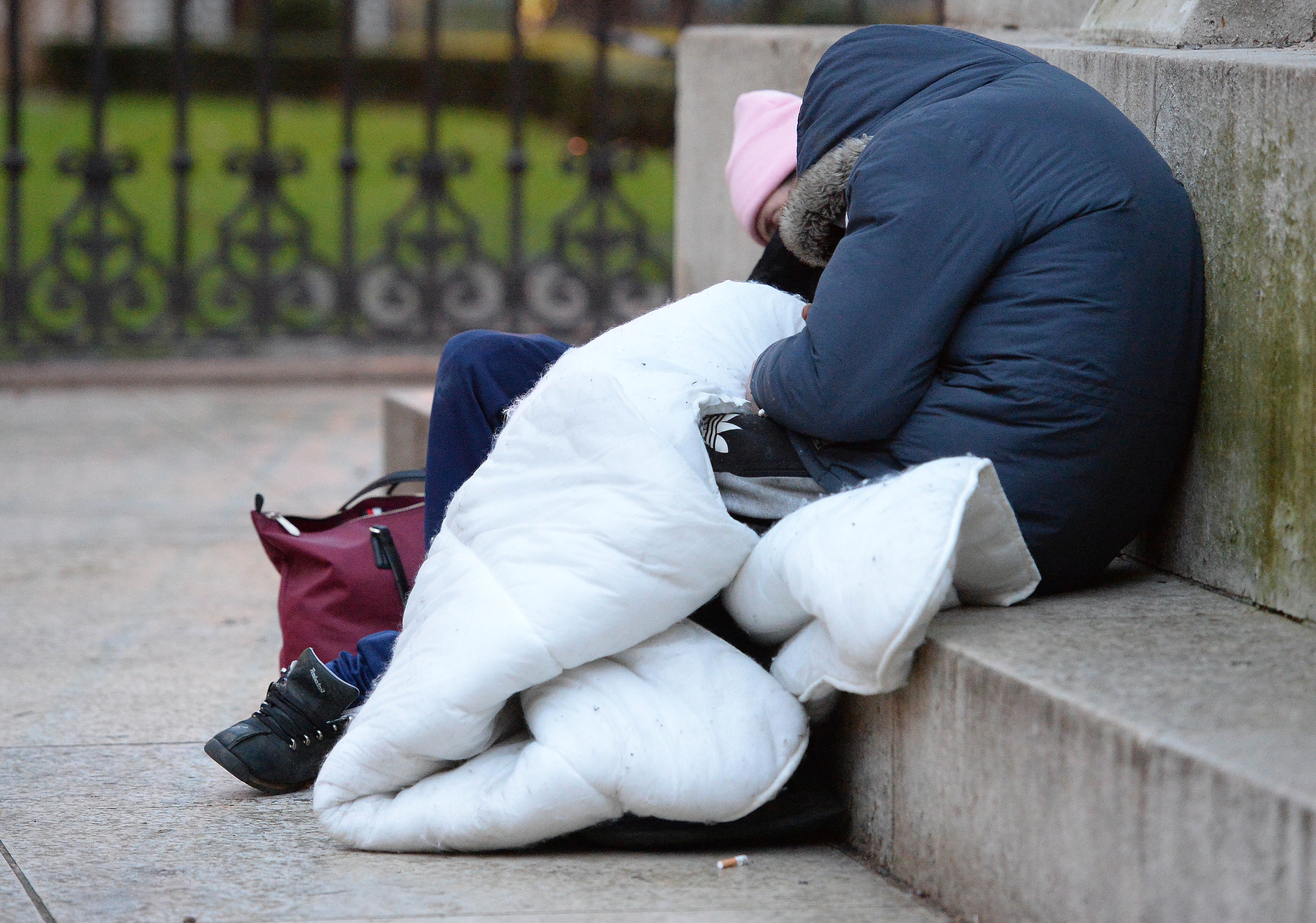Women more likely to be affected by homelessness, charity says
Shelter said lone mothers are hit the hardest, with barriers blocking them from additional support for their families.

Your support helps us to tell the story
From reproductive rights to climate change to Big Tech, The Independent is on the ground when the story is developing. Whether it's investigating the financials of Elon Musk's pro-Trump PAC or producing our latest documentary, 'The A Word', which shines a light on the American women fighting for reproductive rights, we know how important it is to parse out the facts from the messaging.
At such a critical moment in US history, we need reporters on the ground. Your donation allows us to keep sending journalists to speak to both sides of the story.
The Independent is trusted by Americans across the entire political spectrum. And unlike many other quality news outlets, we choose not to lock Americans out of our reporting and analysis with paywalls. We believe quality journalism should be available to everyone, paid for by those who can afford it.
Your support makes all the difference.Women are more likely to be affected by homelessness than men, Shelter has said.
A report by the charity, named “Fobbed off”, found that 60% of homeless adults in temporary accommodation are women, despite them making up 51% of the general population.
In the last 10 years, the number of homeless women in temporary accommodation has nearly doubled.
Shelter said in 2011, 40,030 women were living in temporary accommodation, but that has risen by 88% to 75,410 in 2021.
Polling carried out by YouGov and commissioned by the charity found that women are 36% more likely than men to be in arrears or struggling with housing costs, with single mothers facing the most affordability issues, with almost one in three “constantly” struggling to keep a roof over their heads.
Figures show that 69% of women who privately rent worry they will not be able to afford anywhere “decent” if their relationship breaks down.
During research, 34 women and one non-binary person who were either homeless or living in poor housing in Birmingham Bristol and Sheffield were interviewed and key findings revealed that domestic abuse is the third most common cause of homelessness, with a third of interviewees having experienced it.
Research also found lone mothers faced additional barriers to support, which some did not seek out of fear that they would be separated from their children.
Toni, 38, from Birmingham, was made homeless after a relationship breakdown and is now living with her children in temporary accommodation, which she described as “mouldy”, in “disrepair” and inaccessible for her disabled son.
It doesn’t make me feel great, I’m not homeless through any choice of my own
She said: “When you’re homeless, you don’t even get spoken to like you’re human. Because you’re in temporary accommodation people make assumptions about you.
“It doesn’t make me feel great, I’m not homeless through any choice of my own.
“I put on a brave face for the kids, but we can’t live in a temporary flat forever. This will be our fourth Christmas spent homeless – every year I say we’ll be gone by the next, but we’re still here. Temporary accommodation doesn’t feel very temporary when it’s been that long.
“I feel like we’ve been forgotten about.”
Polly Neate, chief executive of Shelter, said women are bearing the brunt of the escalating housing crisis and “are being failed at every turn”.
She added: “No mother should have to choose between buying food or paying her rent. No woman should have to stay with her abuser or face the streets.
“The hike in living costs and cuts to Universal Credit mean it’s only going to get tougher for thousands of women barely hanging on to their homes. It’s appalling women are being fobbed off by professionals who are supposed to help them, and it’s no wonder they feel scared and alone.
“If we’re going to turn back the tide on women’s homelessness, we need to listen to women and better understand their needs. For the women who feel like there’s nowhere to turn, Shelter is here.”
A spokesperson for the Department for Levelling Up, Housing and Communities said: “These figures reflect the increase in support for vulnerable groups, which is preventing thousands of women from becoming homeless. However, we’re clear that temporary accommodation should only be a last resort.
“Tackling homelessness is a Government priority – that’s why we are spending £316 million on this in the next year to build on the success of the Homelessness Reduction Act, which has prevented 400,000 households from becoming homeless, or supported them to settled accommodation.
“We are continuing to work with councils and charities to meet our target of ending rough sleeping by the end of this parliament.”